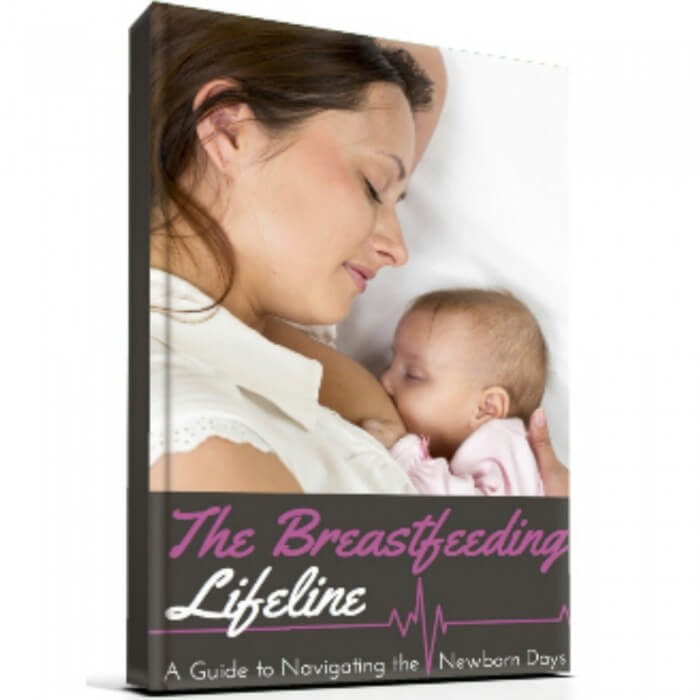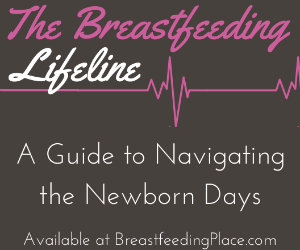Okay mamas, let’s all face it, breastfeeding really isn’t the easiest thing in the world. Sometimes breastfeeding is so difficult in those first several weeks that once you overcome it you feel like you deserve a medal, twenty four hours worth of uninterrupted sleep, and a glass of wine.
But let’s get real here, there’s no breastfeeding medals or trophies, the idea of uninterrupted sleep is laughable, and wine doesn’t exactly mix well with breastfeeding. Breastfeeding can be difficult those first several weeks primarily because of the problems that can come up. So what are normal problems while breastfeeding your newborn?

Normal Problems While Breastfeeding Your Newborn
- Latch. Not every baby will latch on like a pro from the get-go. Sometimes it really does take every available hand in the delivery room to help you. That’s what is so wonderful about the after-birth experience: those professionals that helped get your baby here will also be able to help you feed him or her (and calm your nerves too). For some breastfeeding relationships, latching can take lots of practice. Perhaps you have one side with a slightly inverted nipple or perhaps your baby has a very small mouth; it takes time and help to figure things out.
- Positioning. Even if you’re like me and attended a breastfeeding class and held a lifeless baby doll and thought that you had the hang of positioning, there is a good chance that when you really have that little sucker clamped down on there, you’ll feel like you’re holding them wrong. Always try to support yourself and the baby with extra pillows to ensure comfort until you see what works for you. There are numerous positions that help with various things, but try and just stick to the basic cradle hold, cross-cradle hold, or football hold in the beginning.
- Milk Supply/Engorgement. Not every mother will get her milk right away; for some it takes days (and lots of breastfeeding to signal for it). Others will frequently develop oversupply issues or engorgement in those first few weeks. It is very common for a mother to have hot, tender, hard-to-the-touch breasts that feel like at any given point in time they may explode. This is because sometimes, when milk comes in, it comes in abundantly. It takes time for your body to make your supply match the baby’s demand. Engorgement isn’t something to play with as it can lead to fevers and even infections like mastitis. Working through engorgement isn’t easy but is very doable. Read my post here to help you manage your engorgement and just remember that you’ll eventually overcome the “humps.”
- Watching the Clock. A new mother frequently wonders if she is breastfeeding enough, too long, or too much. While it can be comforting to have some general idea of how long your baby feeds, there is no absolute need to watch the clock. Every baby is different, and restricting your baby’s feedings can be harmful to your supply. Nurse when your baby shows signs of wanting to nurse and let them nurse for as long as their little heart desires.
- Cluster Feedings. This is a HUGE “thing” with babies, particularly newborns. Cluster feedings generally take place in the evenings. However, they can take place any time. Cluster feedings are basically your baby’s way of signaling your body to make the milk it needs in the beginning and then to make more as time goes on. Sometimes it seems like your baby never wants to get off your breast or that they want to nurse every hour or so; this is OKAY. Don’t start worrying that you’re not satisfying your new baby–cluster feedings are crucial to breastfeeding! This is one of the most normal problems while breastfeeding your newborn. In fact, it is NOT really a problem, it’s a good thing!
- Fear. Fear is a big thing for a new mother. You fear that you’re doing it wrong, that you are not making enough milk, and that your baby isn’t content. Find the right support you need, whether it’s through family and friends, online, or with local breastfeeding groups, and express your fears. They are perfectly normal and we all have them. And remember, most all breastfeeding problems have a solution of some sort. There’s always help to be found.
It’s perfectly normal to have fears and to face some issues in those first few weeks. There are many normal problems while breastfeeding your newborn that we all face in one way or another.
Just remember to enjoy your baby, enjoy the moments, and keep pushing through. You’ll get there and you’ll be so happy you did!






Speak Your Mind